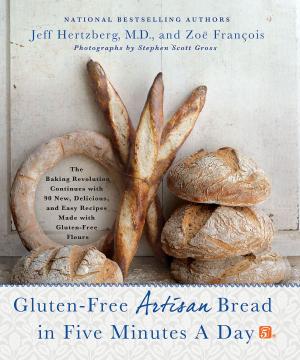| Author: | Carolly Erickson | ISBN: | 9781429904018 |
| Publisher: | St. Martin's Press | Publication: | August 17, 2000 |
| Imprint: | St. Martin's Press | Language: | English |
| Author: | Carolly Erickson |
| ISBN: | 9781429904018 |
| Publisher: | St. Martin's Press |
| Publication: | August 17, 2000 |
| Imprint: | St. Martin's Press |
| Language: | English |
Josephine Tascher de la Pagerie, born a Creole on the island of Martinique in the French West Indies, became one of the best known and most envied women who ever lived. Sent to France to make an advantageous marriage to a young aristocrat, her naivete and lack of education left her ill prepared to deal with the sophisticated - if decadent - world of pre-Revolutionary Paris. Treated cruelly by her shallow young husband, her life had become a nightmare during the Terror, in which she was imprisoned and almost lost her life. It was during this period that she honed the skills of manipulation and seduction that would lead her from the dungeons of the terror into the beds of the post-Revolutionary powerbrokers, including the Corsican corporal who would conquer Europe.
As the wife of Napoleon Bonaparte, conqueror of Europe and the wonder of his age, Josephine was assumed to be a worthy consort for her astounding husband, a woman as beautiful, wise and altogether remarkable as he was charismatic, brilliant, and invincible in battle. When in 1804 she knelt before Napoleon in Notre Dame and he placed the imperial crown on her head, making her Empress of France, her extraordinary destiny seemed to be fulfilled. The unknown woman from Martinique became the highest ranking woman in the land, as far above the average Frenchwoman as Napoleon himself was above the humblest soldier in his armies.
Yet the truth behind the glorious symbolism in Notre Dame was much darker. For the eight-year marriage between Josephine and Napoleon had long been corroded by infidelity and abuse, and for years Josephine had dreaded that her husband would divorce her. Far from the love match previous biographers have described, Erickson's Napoleon and Josephine were the ultimate pragmatists, drawn together by political necessity while their emotions were engaged elsewhere.
Carolly Erickson, the critically acclaimed biographer of the Tudor monarchs, as well as of Marie Antoinette and Queen Victoria, using her trademark ability to penetrate and explain the psychological make-up of her subjects, paints a fascinating portrait of an immensely complex and ultimately tragic woman.
Josephine Tascher de la Pagerie, born a Creole on the island of Martinique in the French West Indies, became one of the best known and most envied women who ever lived. Sent to France to make an advantageous marriage to a young aristocrat, her naivete and lack of education left her ill prepared to deal with the sophisticated - if decadent - world of pre-Revolutionary Paris. Treated cruelly by her shallow young husband, her life had become a nightmare during the Terror, in which she was imprisoned and almost lost her life. It was during this period that she honed the skills of manipulation and seduction that would lead her from the dungeons of the terror into the beds of the post-Revolutionary powerbrokers, including the Corsican corporal who would conquer Europe.
As the wife of Napoleon Bonaparte, conqueror of Europe and the wonder of his age, Josephine was assumed to be a worthy consort for her astounding husband, a woman as beautiful, wise and altogether remarkable as he was charismatic, brilliant, and invincible in battle. When in 1804 she knelt before Napoleon in Notre Dame and he placed the imperial crown on her head, making her Empress of France, her extraordinary destiny seemed to be fulfilled. The unknown woman from Martinique became the highest ranking woman in the land, as far above the average Frenchwoman as Napoleon himself was above the humblest soldier in his armies.
Yet the truth behind the glorious symbolism in Notre Dame was much darker. For the eight-year marriage between Josephine and Napoleon had long been corroded by infidelity and abuse, and for years Josephine had dreaded that her husband would divorce her. Far from the love match previous biographers have described, Erickson's Napoleon and Josephine were the ultimate pragmatists, drawn together by political necessity while their emotions were engaged elsewhere.
Carolly Erickson, the critically acclaimed biographer of the Tudor monarchs, as well as of Marie Antoinette and Queen Victoria, using her trademark ability to penetrate and explain the psychological make-up of her subjects, paints a fascinating portrait of an immensely complex and ultimately tragic woman.















